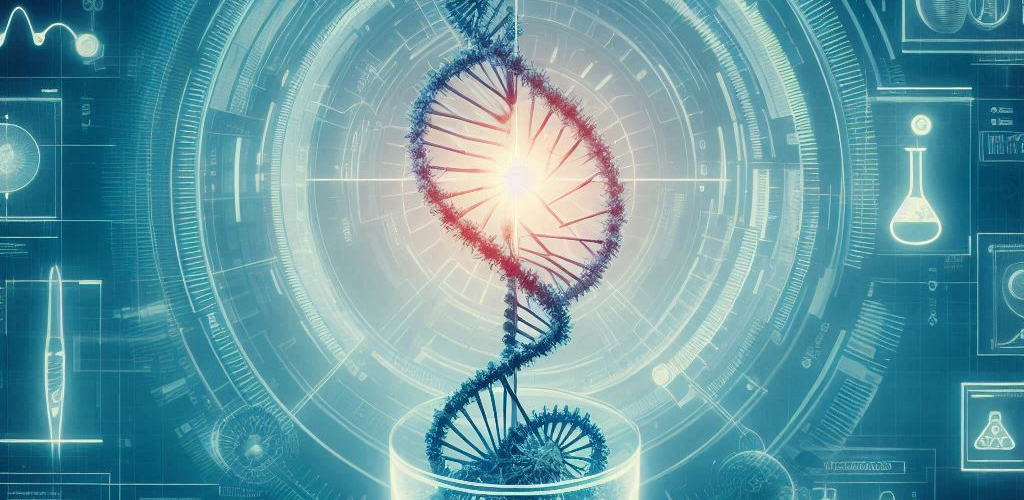In the ever-evolving landscape of scientific discovery, synthetic biology has emerged as a transformative field that holds immense promise for revolutionising various aspects of our world. By harnessing the power of genetic engineering and computational tools, synthetic biologists are rewriting the code of life itself, paving the way for groundbreaking advancements in medicine, agriculture, energy production, and beyond. This blog delves into the captivating realm of synthetic biology, exploring its core principles, cutting-edge applications, and the ethical considerations that accompany this pioneering science.
Decoding the Fundamentals of Synthetic Biology
At its core, synthetic biology involves the design and construction of novel biological systems or the re-engineering of existing ones. By leveraging our understanding of DNA, the fundamental building block of life, synthetic biologists can create customised genetic sequences and introduce them into living organisms. This process allows for the precise manipulation of cellular functions, enabling the production of desired compounds, the modification of traits, or the creation of entirely new life forms.
Synthetic Biology in Medicine: Revolutionising Healthcare
One of the most promising applications of synthetic biology lies in the field of medicine. Researchers are exploring ways to engineer bacteria or viruses to detect and eliminate cancer cells, deliver targeted therapies, or monitor and maintain overall health. Additionally, synthetic biology has the potential to accelerate the development of vaccines and therapeutics, as well as personalised treatments tailored to an individual’s genetic makeup.
Transforming Agriculture and Environmental Sustainability
The agricultural sector is another area where synthetic biology is making significant strides. By engineering crops to be more resilient, nutritious, and resistant to pests and diseases, synthetic biologists aim to address global food security challenges. Moreover, synthetic biology offers solutions for sustainable energy production, such as the creation of biofuels from engineered microorganisms or the development of self-repairing materials inspired by nature.
Ethical Considerations and Responsible Innovation
As with any transformative technology, synthetic biology raises important ethical questions that must be carefully considered. Issues surrounding biosafety, biosecurity, and the potential misuse of engineered organisms require robust governance frameworks and international collaboration. Additionally, the societal implications of synthetic biology, such as the impact on employment, equity, and the environment, must be thoroughly examined and addressed.
The Future of Synthetic Biology: Boundless Possibilities
The potential of synthetic biology is truly boundless, with researchers exploring applications in fields as diverse as materials science, information storage, and even space exploration. As the field continues to evolve, it will be crucial to foster interdisciplinary collaboration, promote public understanding, and ensure that the benefits of synthetic biology are shared equitably across society.
What are the latest advancements in synthetic biology ?
Based on the search results, here are the key advancements in synthetic biology:
- CRISPR-Cas9 Gene Editing: CRISPR-Cas9 is a powerful genome editing tool that allows for precise modifications of DNA sequences. This technology has revolutionised genetic engineering and has immense potential for developing new treatments for genetic diseases.
- DNA Synthesis and Assembly: Advances in DNA synthesis and assembly techniques have made it easier to construct custom genetic sequences and introduce them into living organisms. This enables the precise manipulation of cellular functions.
- Directed Evolution: Directed evolution, which was awarded the 2018 Nobel Prize, allows researchers to engineer enzymes and organisms with desired traits through iterative cycles of mutation and selection. This is a key tool in synthetic biology.
- Metabolic Engineering: Researchers are engineering microbes and cells to produce valuable chemicals, fuels, and other compounds by optimising their metabolic pathways. This includes the production of compounds like leghemoglobin, sitagliptin, and diamines.
- Automated Strain Engineering: Automated platforms for designing, building, and testing genetic constructs are accelerating the pace of synthetic biology research and development. This helps overcome challenges with reproducibility and scalability.
- Computational Design Tools: Advances in computational biology and bioinformatics are enabling the use of modelling and simulation tools to design and optimise synthetic biology systems prior to experimental implementation.
- Biosensors and Digital-to-Biological Converters: The development of novel biological sensors and digital-to-biological converters is bridging the gap between digital information and biological systems, enabling new applications.
These advancements are driving rapid progress in synthetic biology and enabling the development of innovative solutions in healthcare, agriculture, energy, and beyond. However, the field also faces challenges around biosafety, biosecurity, and ethical considerations that must be carefully addressed.
Conclusion
Synthetic biology represents a quantum leap in our understanding and manipulation of life itself. By rewriting the code of life, we are unlocking new frontiers of innovation that hold the power to transform our world for the better. However, as we embark on this exciting journey, we must remain mindful of the ethical considerations and work collectively to harness the potential of synthetic biology responsibly and sustainably. The future of synthetic biology is a tapestry of boundless possibilities, woven together by the ingenuity of researchers, the wisdom of ethicists, and the collective vision of a society that embraces the transformative potential of this pioneering science.
Citations:
[2] https://www.wellspring.com/blog/top-5-synthetic-biology-innovations-and-latest-technologies
[3] https://www.ddw-online.com/global-advances-in-synthetic-biology-20471-202211/
[4] https://www.nature.com/articles/s41467-020-20122-2
[5] https://www.startus-insights.com/innovators-guide/synthetic-biology-trends/




